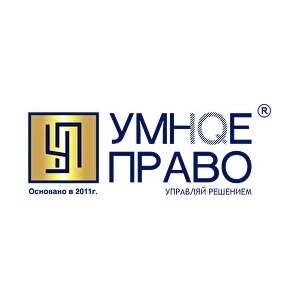Best Trusts Lawyers in Omsk
Share your needs with us, get contacted by law firms.
Free. Takes 2 min.
List of the best lawyers in Omsk, Russia
About Trusts Law in Omsk, Russia
Trusts, a relatively new concept in Russia's legal system, refer to arrangements in which one party holds and manages property for the benefit of another. In Omsk, like the rest of Russia, trusts are governed by the Civil Code of the Russian Federation. While traditional common law trusts are not recognized in Russia, comparable mechanisms such as fiduciary management and inheritance funds serve similar purposes. These arrangements are essential for property management, asset protection, and estate planning.
Why You May Need a Lawyer
Legal assistance is crucial in trust-related matters due to the complexity and unique nature of these arrangements. Common situations where a lawyer's help is beneficial include setting up fiduciary management agreements, navigating the inheritance processes, protecting assets against creditors, managing family wealth, and ensuring compliance with local laws. Legal assistance ensures that all arrangements serve the intended purpose and protect beneficiaries' interests.
Local Laws Overview
The regulation of trust-like structures in Omsk adheres to the broader framework established by federal laws. Key aspects include:
- Civil Code: The Civil Code is the primary source of law governing fiduciary management and similar arrangements.
- Fiduciary Management: Similar to a trust, this involves a fiduciary managing assets for the benefit of another party under a contractual agreement.
- Inheritance Funds: Created through wills, these funds allow for the administration of a deceased person’s property, similar to testamentary trusts.
- Legal Ownership: The fiduciary retains legal ownership of the assets but must manage them in the beneficiary's interest.
- Registration Requirements: Fiduciary management agreements must be registered with authorities to be legally enforceable.
Frequently Asked Questions
What is a fiduciary management agreement?
A fiduciary management agreement in Russia involves transferring assets to a fiduciary who manages them for the benefit of a beneficiary. Although not identical to a traditional trust, it serves a similar purpose in estate and asset management.
Can foreigners set up trust-like arrangements in Russia?
Yes, foreigners can establish fiduciary management agreements in Russia, provided they comply with national laws and any additional requirements concerning foreign entities handling domestic assets.
Are trusts subject to inheritance tax in Russia?
Russia does not impose inheritance tax, but property transfers through inheritance funds may attract other taxes. Consulting a legal professional helps clarify applicable tax obligations.
How are family trusts handled in Russia?
While traditional family trusts are not available, families can use fiduciary management and other legal instruments to manage and protect family wealth for future generations.
What protections do beneficiaries have in these arrangements?
Beneficiaries have the right to enforce fiduciary duties, ensuring the fiduciary acts in their best interests. Legal recourse is available if fiduciaries fail in their obligations.
How can one change or terminate a fiduciary management agreement?
Changes or terminations require mutual consent of the involved parties or legal intervention if conflicts arise. Agreements usually define procedures for modification or dissolution.
What role does the Russian Civil Code play in trusts?
The Civil Code provides the legal foundation for fiduciary management and inheritance-related provisions, outlining rights, duties, and permissible actions of involved parties.
Can a fiduciary be a family member?
Yes, a fiduciary can be a family member, provided they meet legal qualifications and execute their role in accordance with the fiduciary agreement and legal obligations.
What must be included in a fiduciary agreement?
Agreements should detail the assets involved, fiduciary duties, beneficiary rights, and management terms. It’s crucial for these details to adhere to Russian legal standards.
Are there any limitations on the types of assets managed by fiduciaries?
Generally, any lawful asset can be managed under a fiduciary agreement, but specific legal restrictions may apply to certain asset classes, especially those with foreign elements.
Additional Resources
For further assistance and information, individuals can consult:
- Omsk Legal Advice Bureau: Offers guidance on fiduciary management and related legal matters.
- Civil Code of the Russian Federation: Review relevant sections for detailed legal understanding (recommended copies in Russian).
- Federal Tax Service: Provides information on tax implications of inheritance and asset management.
Next Steps
If you require legal assistance with trusts or fiduciary management in Omsk, start by consulting a lawyer specializing in estate planning or civil law. Research local law firms or legal advice centers, and consider setting up meetings to discuss your specific needs. Be prepared with relevant documents and a clear understanding of your objectives to ensure effective guidance and support in navigating Russia's legal landscape.
Lawzana helps you find the best lawyers and law firms in Omsk through a curated and pre-screened list of qualified legal professionals. Our platform offers rankings and detailed profiles of attorneys and law firms, allowing you to compare based on practice areas, including Trusts, experience, and client feedback.
Each profile includes a description of the firm's areas of practice, client reviews, team members and partners, year of establishment, spoken languages, office locations, contact information, social media presence, and any published articles or resources. Most firms on our platform speak English and are experienced in both local and international legal matters.
Get a quote from top-rated law firms in Omsk, Russia — quickly, securely, and without unnecessary hassle.
Disclaimer:
The information provided on this page is for general informational purposes only and does not constitute legal advice. While we strive to ensure the accuracy and relevance of the content, legal information may change over time, and interpretations of the law can vary. You should always consult with a qualified legal professional for advice specific to your situation.
We disclaim all liability for actions taken or not taken based on the content of this page. If you believe any information is incorrect or outdated, please contact us, and we will review and update it where appropriate.








